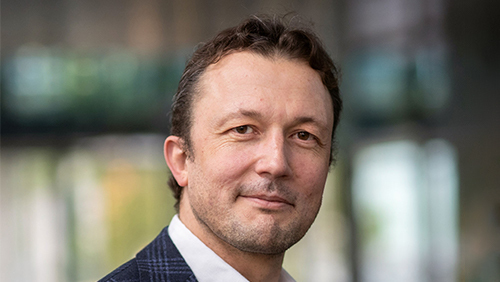
International engineering students still welcome in the Netherlands
Days before Christmas, De Volkskrant published an article titled “Minister requests universities to stop recruiting international students.” Alarmed, I kept reading. Hidden in the text I found some relief: “limited and targeted recruitment would still be allowed” for engineering studies.
As a professor in electrical engineering, I may not be the best communicator, but even I know that most readers will only pay attention to the headline. Indeed, my international network quickly picked up on this. They felt like a door was slammed in their faces. They felt the Netherlands had changed. And not for the better.
In my last column, I highlighted the need for a Chips Education Act, and the need for talent to make that happen. International talent, female talent, diverse talent. That’s not some noncommittal statement; it’s a requirement. Whether you walk the streets in Silicon Valley or our own Brainport Eindhoven area, you can easily see that deep tech, including our much-beloved chips, is built by the brains of a truly global workforce. What better approach than to open the door for international students?
Of course, the picture is complex. International students take up seats in lecture halls, which apparently are overcrowded. Let’s analyze this. Universities have indeed grown. It’s no secret that paying them per graduate has been driving this growth. Even the minister assessed this month that we’re pushing our young people too much into academic education, and we need to revalue professional education far more. So yes, we might have too many university students – too many Dutch students, to be precise.
Another argument is that international students cost money and might leave the country after graduation. Yes, students cost money, although that’s less of an issue for non-European students, who pay full tuition fees. We gain, however, once these students start working in the Netherlands and start paying taxes. This so-called stay rate is essential. For the Brainport Eindhoven region, it’s over 50 percent. That’s huge. It’s an asset we should cherish. It’s also an asset that’s sorely needed, as the demand for engineering talent will only grow over the next decade.
I get it. Politics isn’t like science. Common sense loses from the need for votes and media one-liners. China is bad and threatens Taiwan, so we need to make our own chips. The Netherlands is full, so we don’t want internationals. All children are equal and talented, so they should all be able to go to university. All educations are equal, so we don’t distinguish between media studies and electrical engineering. And all regions are equal, so if Groningen has too many students, we need to bring down the number of students in Eindhoven too. We know that’s how politics works. It just doesn’t make any sense.
The beauty of policymaking is that it has impact. Impact on society, people and our lives. Impact on other policies too. Policies and laws can’t be made in isolation from each other. We need to ask ourselves what the vision is for the Netherlands, Europe and – back on topic – our deep tech economy. And then we need to work from that, coherently.
I used to work in Denmark. Danes love Danishness, the Danish language and waving Danish flags. The country is rich, safe, well-functioning, and has a great economy and work-life balance. What’s not to like for international talent? It bombs, however, when it comes to attracting internationals. ‘Feeling welcome’ actually matters to people. So let me help our Dutch minister with his next press release:
“The Netherlands is facing some big challenges, in housing, affordability and quality of education, and we will work on that by implementing a selection process in higher education. Our country also sees some great opportunities, in semiconductors, AI and deep tech in general. We cannot do that alone, and for that, we still need you, young engineering talent all around the world. Come study with us, come work with us and come live with us.”
I suppose that our Education Minister said the same thing in De Volkskrant last month. But don’t you think that this sounds much better?





